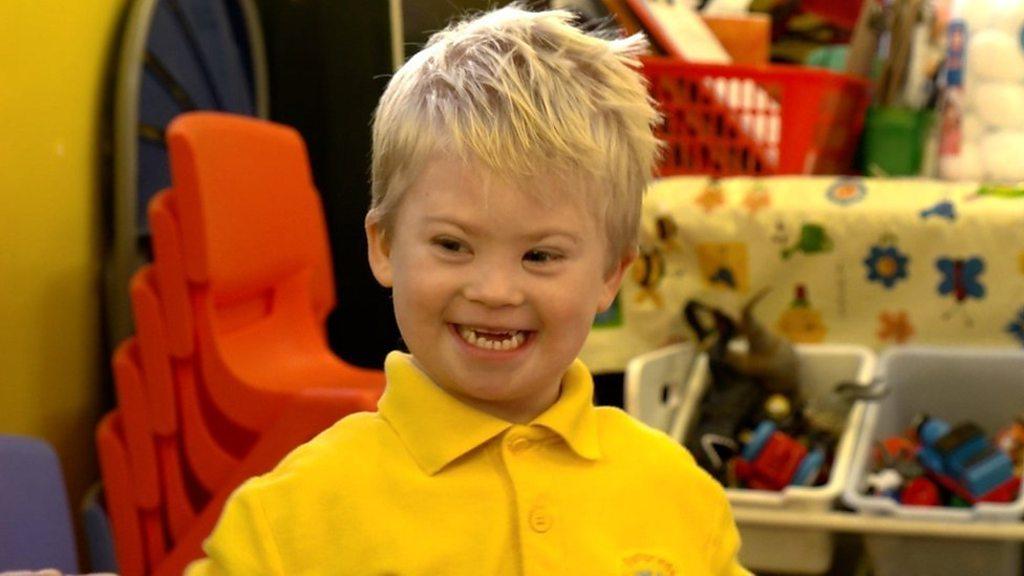Coventry woman with Down's to fight High Court abortion ruling
- Published
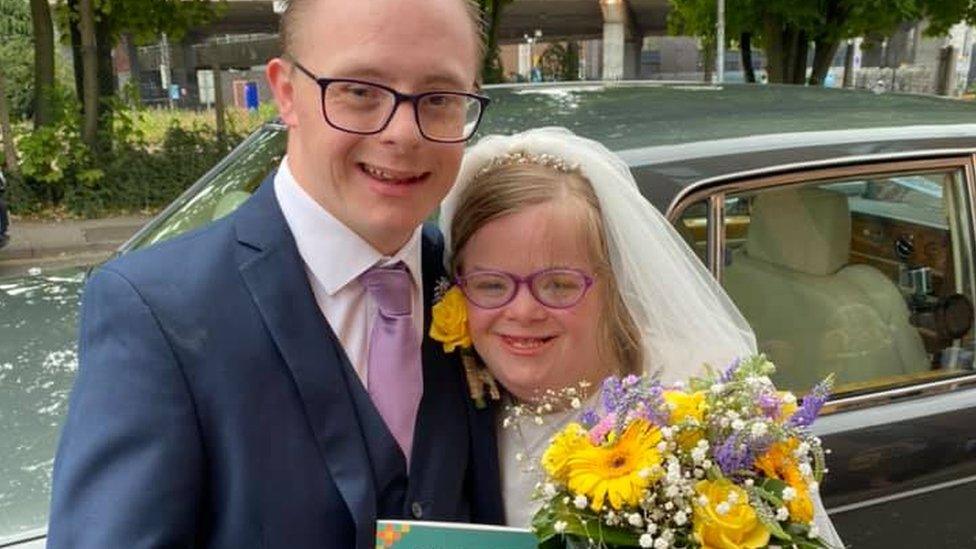
Campaigner Heidi Crowter married James Carter last year
A woman with Down's syndrome says she will continue to fight to change the law that allows abortion up to birth for a foetus with the condition.
Heidi Crowter brought a case against the government in July saying the legislation did not respect her life, but she lost in the High Court last month.
Ms Crowter, 26, from Coventry, told BBC News she initially "lost the strength in herself" after the result.
But she said she planned to appeal.
Ms Crowter's legal team had argued rules on abortion were unlawfully discriminatory.
Under legislation for England, Wales and Scotland, there is a 24-week time limit for abortion, unless "there is a substantial risk that if the child were born it would suffer from such physical or mental abnormalities as to be seriously handicapped", which includes Down's syndrome.
The government maintained there was no evidence the law discriminated against Down's and the case was dismissed, with judges finding the section of the Abortion Act pertaining to the condition to not be unlawful. They said it aimed to strike a balance between the rights of the unborn child and of women.
Ms Crowter said the outcome had made her feel "like people didn't want me in the world".
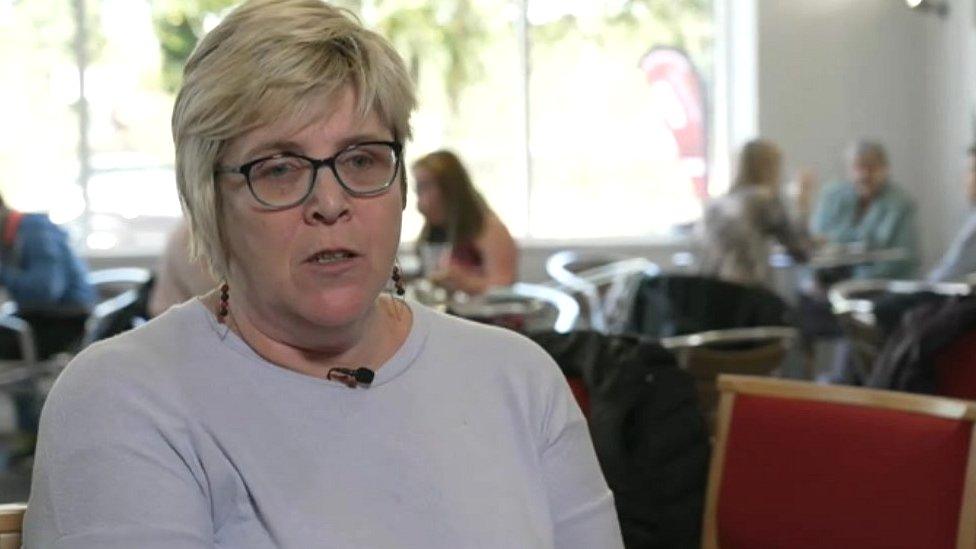
Liz Crowter, Heidi's mother, said she was not surprised by the High Court decision but welcomed her daughter's plans to challenge it
Ms Crowter, who explained previously she had not been campaigning against women's right to choose, said: "I do feel discriminated against and the law doesn't change how I feel.
"We're going to ask the Court of Appeal to see if we can appeal and we'll go from there - let's do this."
Liz Crowter, Heidi's mother, said she was not surprised by the High Court decision but welcomed her daughter's plans to challenge it.
"To hear that somebody thinks there's no discrimination when the rule of the land is 24 weeks for one baby and full terms for a disabled baby - it's clearly discrimination," she said.
She added parenting was hard "whatever your children are like" and people's feelings and the "great support that there is out there" needed to be taken into account when making law.
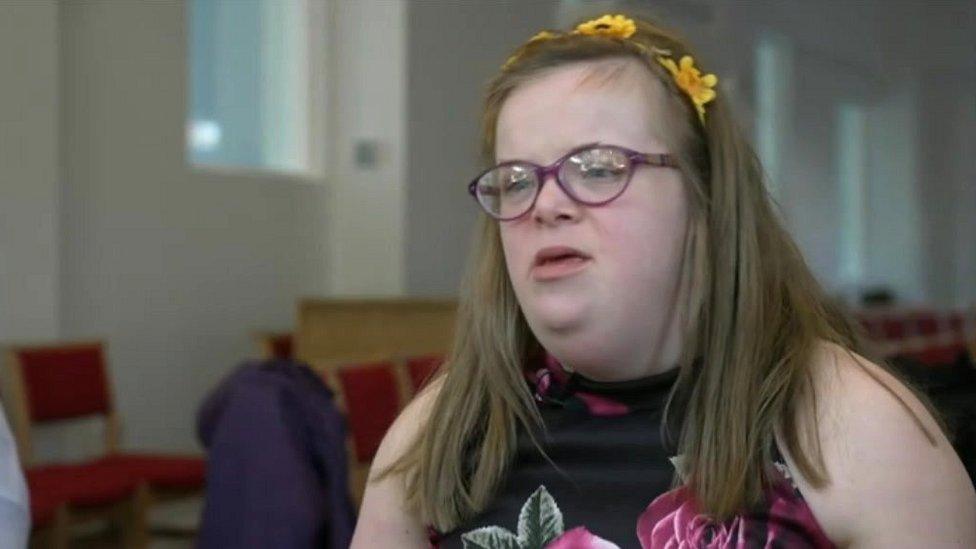
Ms Crowter told BBC News she was 'confident' of being able to appeal the decision
Ms Crowter's husband, James Carter, said he would support his wife in her latest legal battle.
"I want Heidi's voice to be heard and I'll try my best [to] support [her] in this court case, to be the best husband.. who would love her and support her."
Speaking in July when the case was brought, British Pregnancy Advisory Service told the BBC there was "a relatively small number of abortions every year" taking place after 24 weeks.

If you have been affected by issues raised in this story, sources of support are available via the BBC Action Line.

Follow BBC West Midlands on Facebook, external, Twitter, external and Instagram, external. Send your story ideas to: newsonline.westmidlands@bbc.co.uk , external
Related topics
- Published23 September 2021
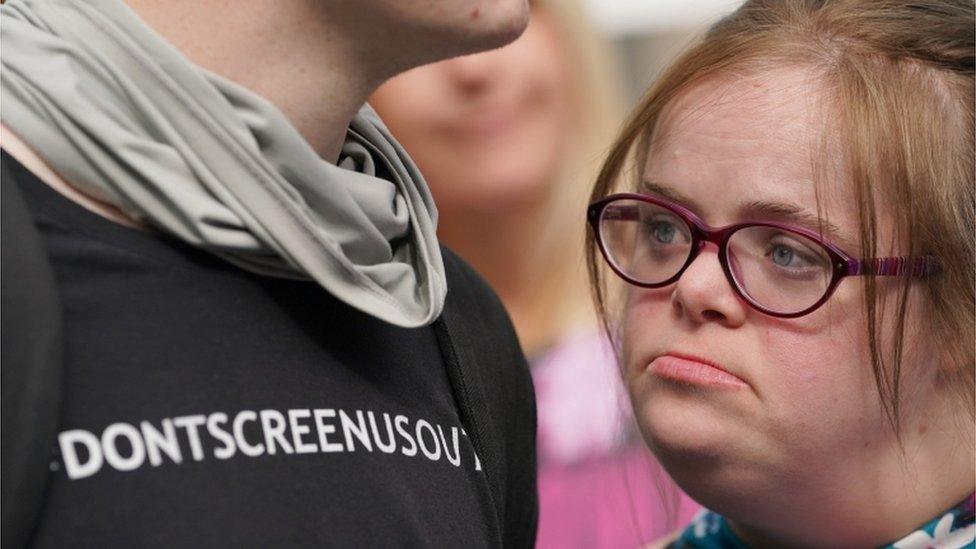
- Published6 July 2021
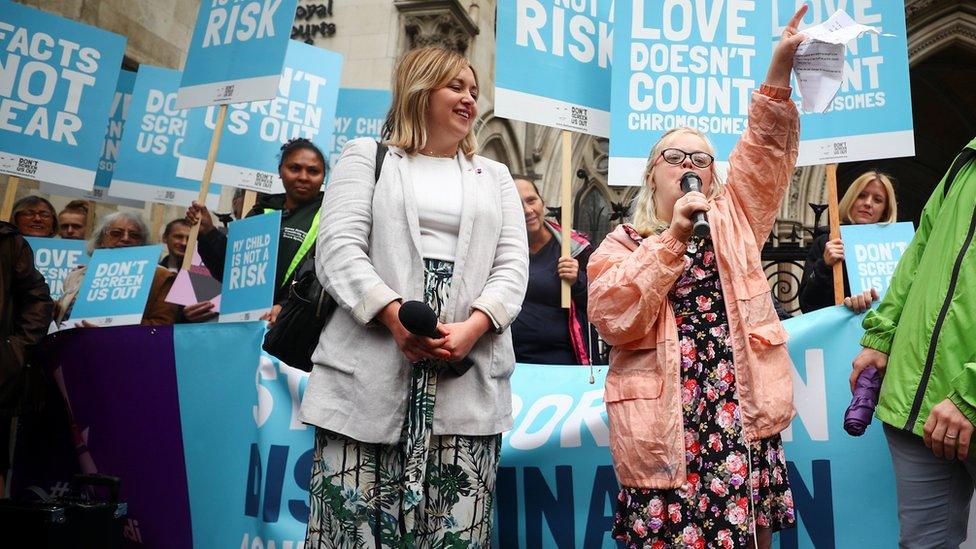
- Published23 September 2021
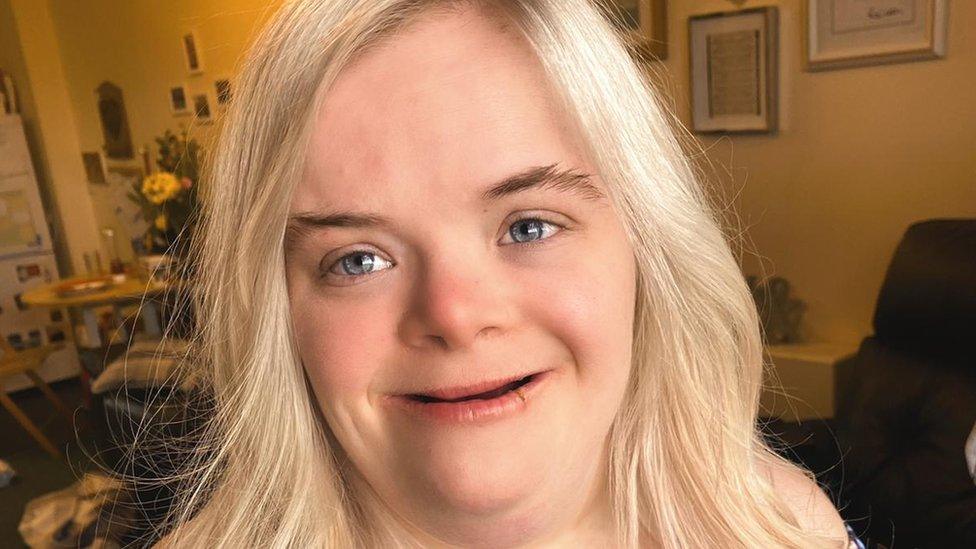
- Published5 May 2021
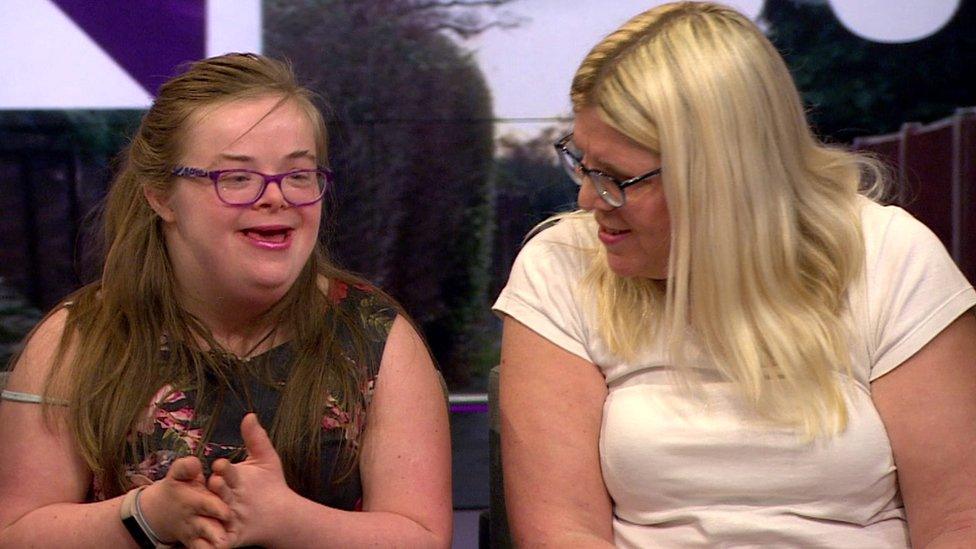
- Published9 October 2018
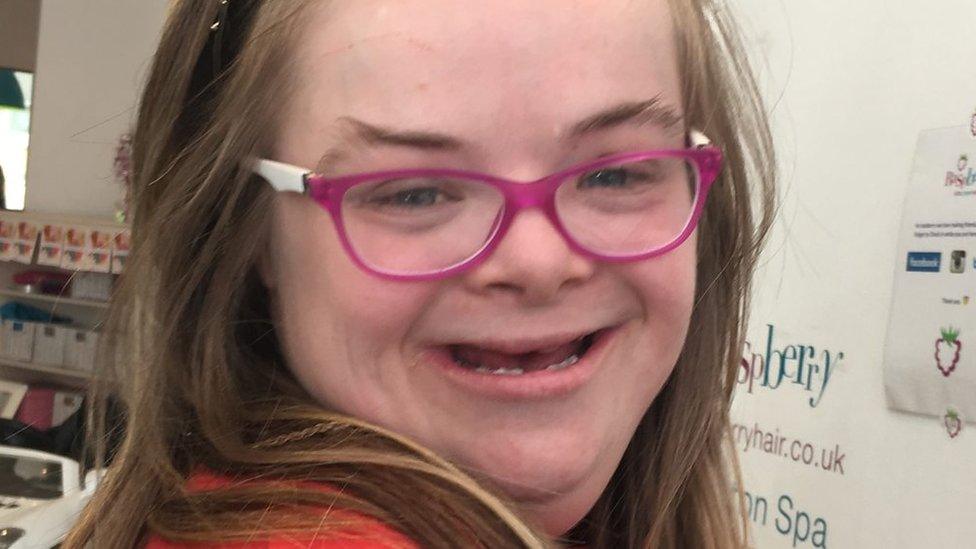
- Published6 July 2020
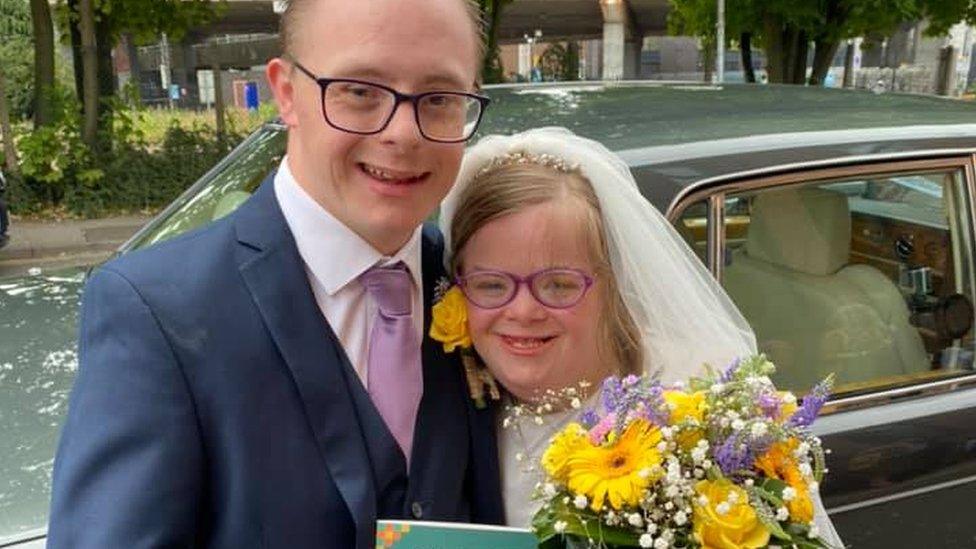
- Published24 February 2020
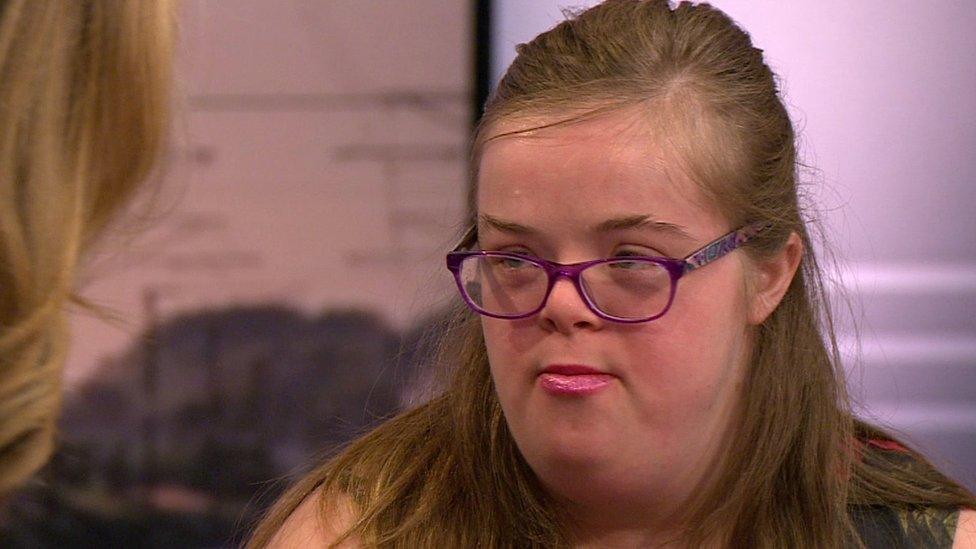
- Published13 January 2019
